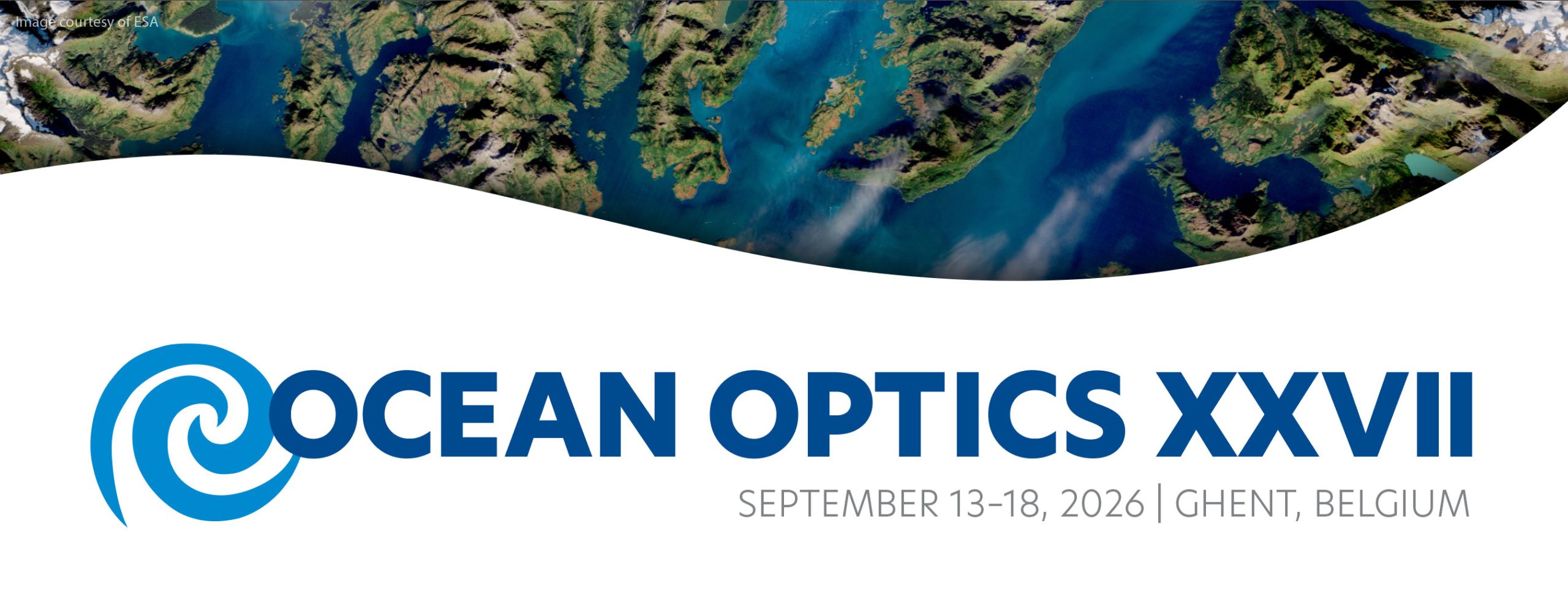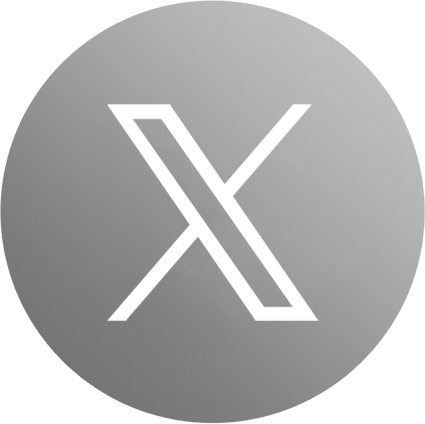TOS News
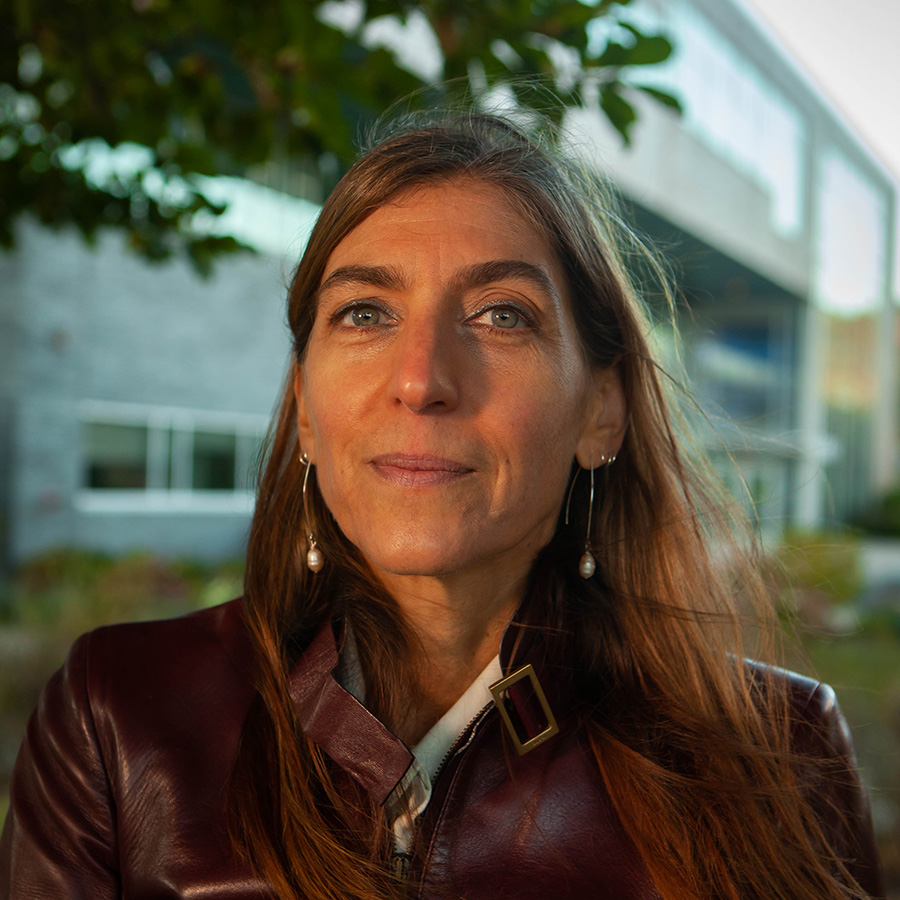
FROM THE TOS PRESIDENT
Paula Bontempi
Dear TOS Members:
A very Happy New Year to all! It’s hard to believe we are almost through January.
TOS has entered 2026 with a goal of building community and new avenues for science, technology, and education through the continued implementation of our strategic plan. There have been a number of wonderful society partnerships that have flourished as we move forward with our shared mission. We continue to focus on the TOS mission and goals for 2025-2030 as stated in the strategic plan:
-
Develop Policy for Science and Science for Policy
-
Serve a Broader Ocean Science Community
-
Support Undergraduate and Graduate Students
The TOS Council and members are well underway in engaging the broad oceanographic communities on discerning pathways to promotion and tenure, engaging with partners such as the Challenger Society and the Society for Women in Marine Science to develop surveys and programming in support of our membership, and thinking about the TOS business structure, including supporting the incredible Oceanography magazine, our membership’s needs and building our demographics. We very much look to the global early-career members to help TOS shape its vision for the future. Thank you, all, for your participation and support!
Fast approaching is the 2026 Ocean Sciences Meeting in Glasgow, Scotland. I hope to see many of you at the TOS events and hear your thoughts on TOS’s future. I also look forward to presenting TOS Honors on our many well-deserving Honorees and Fellows at the TOS Honors Breakfast. For those of you attending OSM26, read more below about attending this complimentary event. We are also planning some special events at the TOS booth, so please stay tuned!
Finally, a thank you to TOS’s outgoing Council members Anna Michel (Applied Technology Councilor), Jun Nishioka (Chemical Oceanography Councilor), and Sheri White (Justice, Equity, Diversity, and Inclusion Councilor), and a welcome on board to our new Council members Alana Sherman (Applied Technology Councilor), Phoebe Lam (Chemical Oceanography Councilor), and Onjalé Scott Price (Justice, Equity, Diversity, and Inclusion Councilor). I look forward to a wonderful year of collaboration, discussion, and action as we build TOS’s future together.
Best wishes,
Paula
SOCIETY NEWS
TOS HONORS PROGRAM
2026 RECIPIENTS
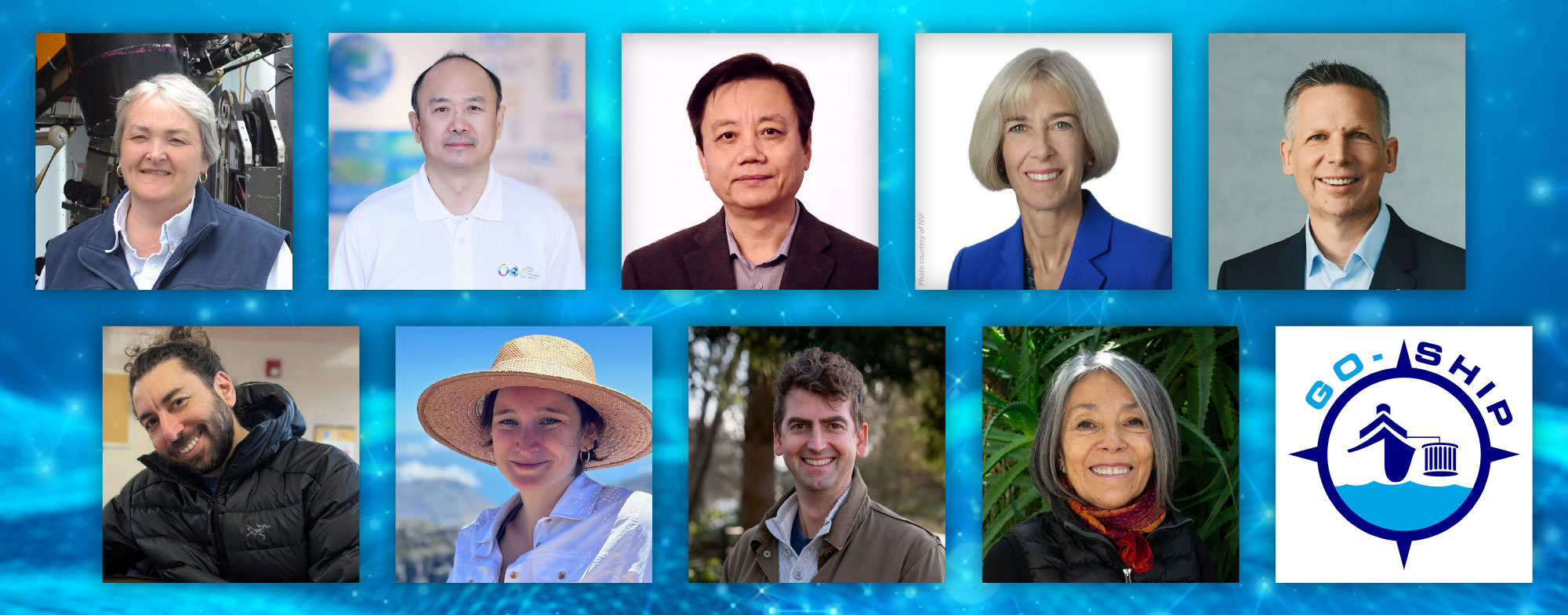
BROECKER MEDAL: Deborah S. Kelley
JERLOV MEDAL: Zhongping Lee
FELLOWS: Chuanmin Hu, Lisa Rom, Oliver Zielinski
EARLY CAREER AWARDS: Jeremy Horowitz, Corday Selden, Seth Zippel
MENTORING AWARD: Elva Escobar Brione
OCEAN OBSERVING TEAM AWARD: GO-SHIP

7:00–8:15 am
Tuesday, February 24, 2026
Village Hotel, Inspiration Suite
Glasgow, Scotland
If you will be attending the 2026 Ocean Sciences Meeting, please join your fellow TOS members for the complimentary TOS Honors Breakfast on Tuesday, February 24, from 7:00 to 8:15 am at the Village Hotel, a short 9-minute walk to the Scottish Event Campus. We will be honor the 2026 TOS Awardees, Medalists, and Fellows. In addition to celebrating our colleagues’ achievements, this event offers a great opportunity to network in a relaxed setting.
We thank Sea-Bird Scientific for their generous support for this event.
Contact Jenny Ramarui by Friday, February 13, 2026
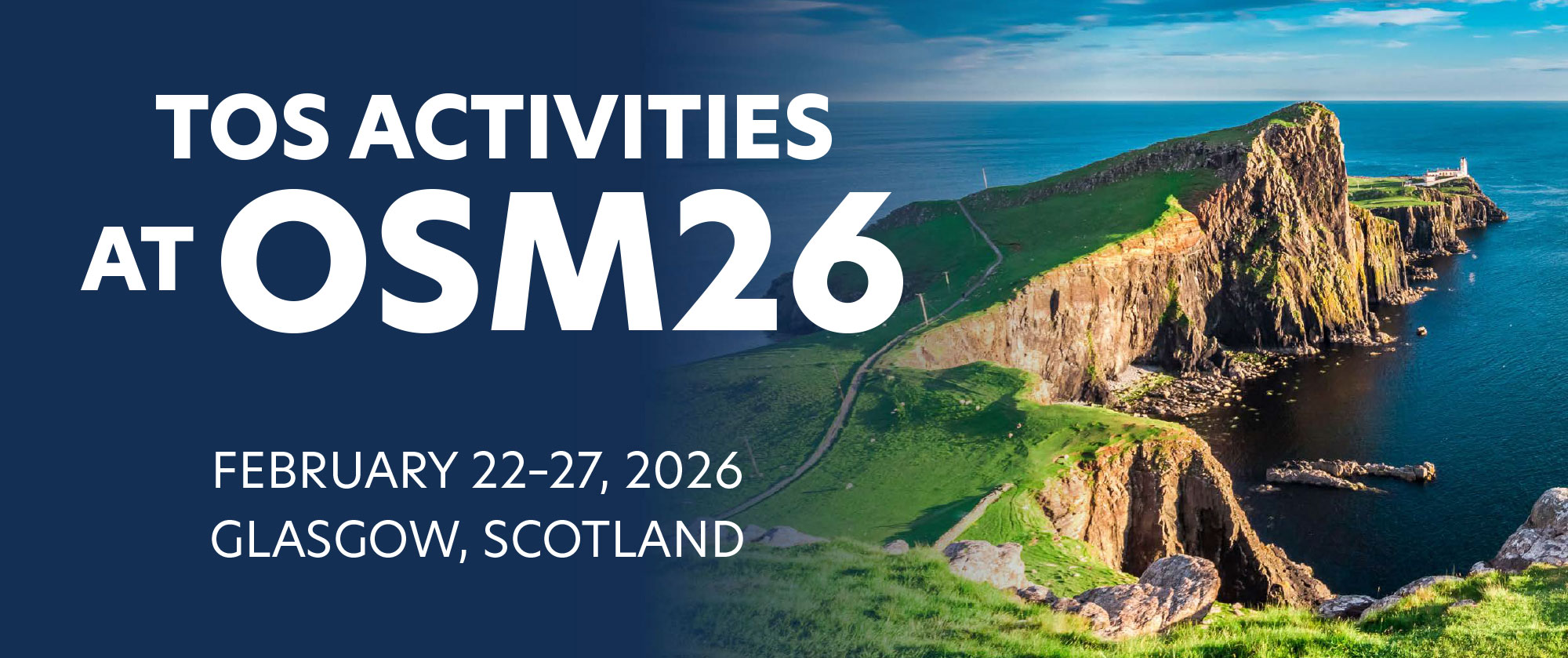
As many of us begin planning our schedule for the Ocean Sciences Meeting in February, we would like to bring your attention to several TOS-related activities. Get details on the TOS Booth, Honors Breakfast, and Membership Meeting, TOS-supported activities, including workshops on developing your CV/resume and best practices for building a professional online profile, and more.
OCEANOGRAPHY NEWS
SUBMIT A MANUSCRIPT
SHARE YOUR RESEARCH RESULTS
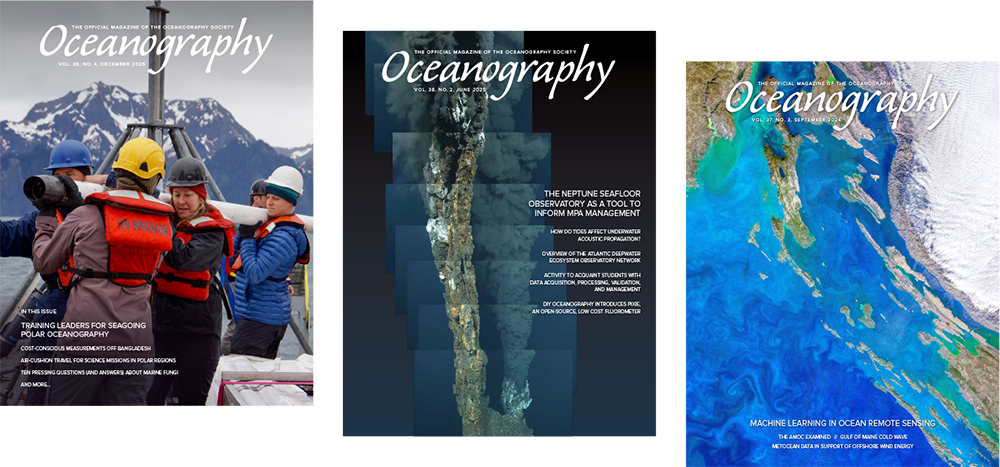
WHAT CATCHES OUR ATTENTION
FEATURE ARTICLES provide an outlet for making significant advances in oceanography accessible to a broad readership.
BREAKING WAVES articles describe novel approaches to multidisciplinary problems in oceanography.
OCEAN EDUCATION articles inspire teachers in higher education to try new active, student-centered instruction.
DIY OCEANOGRAPHY articles share information on homemade sensors, instruments, or software tools so others can build them.
REPORTS describe the goals, activities, and accomplishments of meetings, workshops, and conferences.
COMMENTARIES present analyses of issue of interest written by experts in the field.
Increase the impact of your Oceanography article by embedding videos, animations, photo galleries, and audio files in the flipbook version. File formats and size limits for these assets can be found on the Author Guidelines page.
MEETINGS & CONFERENCES NEWS
We look forward to welcoming you to Ocean Optics XXVII for a week of insight, collaboration, and connection. This event brings together a diverse ocean optics community, including oceanographers, limnologists, optical engineers, Earth observation scientists, resource managers, and policy professionals from across the globe, all united by a shared passion for optics in aquatic environments.
Sign Up for TOS News

© 2026 The Oceanography Society
1 Research Court, Suite 450-117, Rockville, MD, 20850, USA | Phone: (1) 301-251-7708 | [email protected] | Privacy Policy

